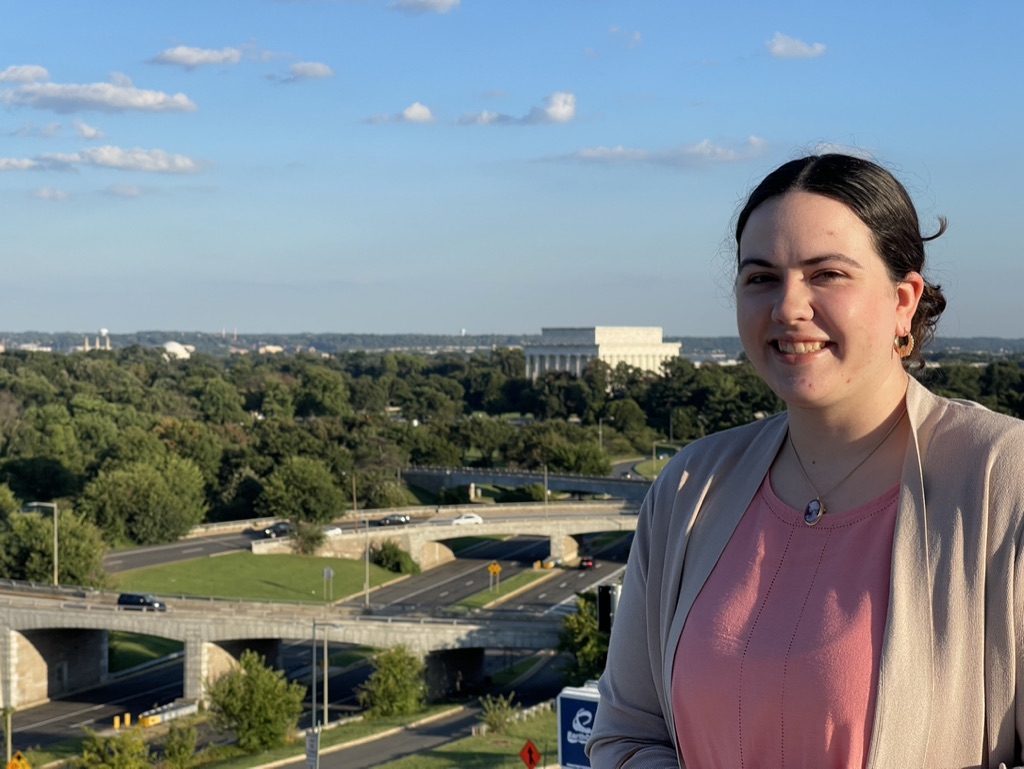Megan Seaver is an undergraduate student at Emmanuel College, pursuing a bachelor’s degree in writing, editing, and publishing, as well as minors in political science and gender studies. Throughout college she has been a part of student organizations, Her Campus and WGS, that help women to speak their truth and to support one another. She believes that being open to hearing the stories and experiences of all women will make it easier to create a safer and more accepting world for all people.
When and how did you first get involved with Sahiyo?
I first found out about Sahiyo while searching for a summer internship online during my junior year of college. I knew I wanted to do something that would have a positive impact on people's lives, while also fulfilling my passions for writing and storytelling. I was immediately drawn to the position of Editorial Intern, which was described as working to help share survivors stories on the blog. Once in the position, I began supporting the blog and conducting outreach with survivors as well as Sahiyo’s volunteers to help share their stories.
What was it like transitioning from Editorial Intern to Editorial Assistant?
The biggest change for me was being more involved with the process of interviewing survivors. As an intern, I had mostly worked with transcripts from previously conducted interviews with survivors and activists, and used these to write up blogs. As Editorial Assistant, I was tasked with conducting interviews myself, in addition to writing up the blogs. At first I definitely felt apprehensive about the interviewing process, mostly because I wanted to make sure that the survivors felt comfortable and supported during the interview, and I didn’t want to let them down. However, after conducting a few interviews with the help of Editorial Coordinator Rachel Wine, as well as doing some on my own, I began to feel more and more confident in my ability to conduct the interviews in a successful and supportive way.
Interviewing also increased my knowledge and understanding of FGC as a whole, and has left me feeling more willing to speak and write on the topic for my work at Sahiyo, but also in my personal life. FGC wasn’t something that was talked about in my own family and friend groups, or even in my academic settings. FGC is also not something that is widely known about in the United States, even though the practice occurs here. I think that time spent at Sahiyo has opened me up speaking more on topics and issues that I feel strongly about, including FGC, and that confidence has only grown as I have transitioned into being the Editorial Assistant.
What else does your work with Sahiyo include?
A major category of my work falls into creating Sahiyo’s monthly newsletter. Every month, Sahiyo puts out a newsletter highlighting upcoming events, survivor stories, and reflections from past events. This work is a team effort, with members from Sahiyo’s staff writing information and reflections, and members of Sahiyo’s communities contributing as well. The newsletter also gives us a chance to highlight Sahiyo’s team members, who help write the introduction for the newsletter and contribute spotlights about their work. Creating the newsletter over the past three months has allowed me to hone my editing and writing skills, while also supporting all facets of Sahiyo’s work.
How has your involvement with Sahiyo impacted your life?
Sahiyo has impacted my life in numerous ways. Before my internship, I didn’t have an extensive knowledge of FGC, and the effects that the practice had on the lives of survivors. I’ve always been passionate about supporting women's voices and stories, but there was definitely a learning curve before I felt it was appropriate for me to speak and write about FGC. I also feel that speaking with survivors has further instilled my belief that there is no such thing as a “woman's problem”; a woman's problem is a problem for everyone in society. The mission to end FGC requires support from all kinds of people, and the more people that are educated about the topic, particularly in the U.S. where the practice is not widely known but does occur, the more people who will choose to stand up and join the campaign to end FGC.
From a professional standpoint, interning and now working for Sahiyo is my first step into the working world. It's the first chance I've had to apply the skills and tools I’ve been developing in my college years and put them into action. Transitioning from Editorial Intern to Editorial Assistant has definitely come with more responsibilities, but being able to facilitate tasks such as the newsletter and interviews successfully has helped to boost my confidence and recognize that my skills and ideas are valuable. I am extremely grateful to the Editorial team, and the Sahiyo team as whole for supporting me and helping me learn.
What words of wisdom would you like to share with others who may be interested in supporting Sahiyo and the movement against FGC?
I would say that even if you don't know a lot about FGC, but you feel empowered to help the movement, the best way to learn is by jumping in feet first. Sahiyo is an incredibly supportive and welcoming environment, and hosts numerous programs and training about FGC trauma and care throughout the year. I would also encourage people to speak about FGC to their friends and family after educating themselves; working on spreading awareness is one of the best ways to educate others on the practice.

